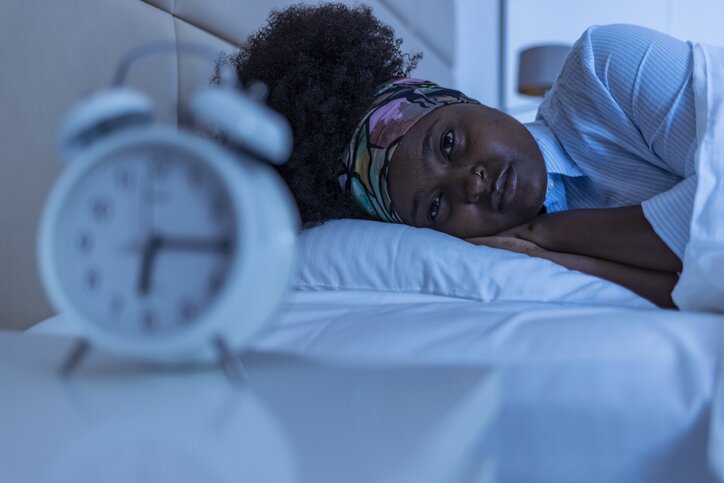Can’t Sleep at Night? Here are Seven Surprising Reasons Why
When you can’t sleep, everything feels like a struggle. If your slumber is lacking, the reasons behind it might surprise you.
Sleep deprivation can cause a range of problems, ranging from mild irritability to serious long-term health conditions. If you find yourself tossing and turning at night or lying awake in bed for hours, you aren’t alone. About 50 to 70 million Americans have sleep disorders, and one in three adults do not regularly get the recommended amount of uninterrupted sleep they need to protect their health.
Please read on to learn about some lesser-known causes of insomnia and the steps you can take to avoid them.

Allergies
People who have allergic rhinitis or nasal allergies, especially in the spring or the fall, may have difficulty breathing at night. Allergies cause congestion, so sufferers may snore or gasp for air, causing wakefulness. Over-the-counter medications like antihistamines can relieve the symptoms, but be sure to discuss your options with your health care provider as some drugs can aggravate sleep issues.
Alcohol and nicotine
If you are routinely smoking packs of cigarettes and throwing back shots of liquor, your sleep health is probably suffering. Research has shown that nicotine is directly linked to restless nights. Although ditching nicotine might feel like a challenge at first, it will ultimately lead you down the path of deep sleep and restful nights. And while it’s true that alcohol may help you fall asleep, you’re likely to awaken in the middle of the night. Alcohol interferes with REM cycle sleep, which is the deep stage needed for restoration and rejuvenation.
Menopause
Declining estrogen can prompt disturbances such as hot flashes in the middle of the night. Research indicates that about a third of menopausal women have sleep problems severe enough to impact their ability to function during the day. Head off the hot, sweaty wake-ups by using sheets and pajamas that wick moisture from the body. Buckwheat pillows are more cooling than traditional latex or down. Herbal and prescription medications exist that can lessen the severity and frequency of night sweats. Talk to your doctor to identify the solution that’s best for your specific needs.
Too much noise
Cranking up your favorite tunes or leaving the television on when you go to sleep isn’t a good idea. That's because when you're dozing, your brain still registers and processes sounds. These noises stimulate the brain, and if you fall asleep with them on, you’re probably going to wake up during the night when you naturally enter a lighter stage of sleep. A quiet room is best, but noise-canceling devices and white and pink noise are acceptable if you need something on in the background.
Spicy food
Eating spicy fare in the evening can cause acid reflux or heartburn, which can impact your sleep. When stomach acid backs up through the esophagus, it can irritate the airway and cause it to collapse, which contributes to snoring. If you can’t get enough jalapeno salsa or ghost pepper potato chips, it’s best to limit them to lunchtime so you can rest easier at night.
Lack of exercise
If you're not moving your body enough on a regular basis, it’s probably contributing to your insomnia. Exercise during the day is vital if you want to fall asleep and stay asleep. It improves the core temperature, relieves anxiety and depression, and realigns the internal body clock. According to research from Johns Hopkins, 30 minutes of daily physical activity is enough to improve sleep. Just be sure to exercise well before bedtime so your body has enough time to wind down and relax.
Fido and Fluffy
Nearly half of dog and cat owners allow their furry loved ones to sleep in bed with them. And while cuddling may comfort you and lower your stress levels, it’s not a good idea if your sleep is suffering. If your cat or dog wakes up scratching, barking, meowing, or moving around, it can wake you up, too. And if you have asthma or allergies, pets in bed can worsen the congestion. Keeping your pets in the bedroom is fine, but they should have their own bed or crate for sleeping.
If you can’t sleep, you don’t have to live with the burden. Make some lifestyle changes and/or talk with your doctor to discover better options for treating underlying health conditions.
We hope you found this information about sleep deprivation helpful. If you have questions or require additional resources, our caring staff is here for you. Please contact us anytime.
About Vaughn Greene Funeral Services: For more than 25 years, Vaughn Greene Funeral Services has been providing a ministry of care to Baltimore’s African American community. As a leading local, minority- and family-owned provider, we promise to provide our highest level of service and respect to families who entrust us to honor their loved ones. For more information about our funeral, cremation, memorial, repast, and grief counseling services, please call us at 410.655.0015 or visit us online at https://vaughncgreene.com/.










Comments